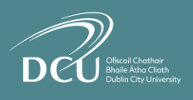About Meng In Electronic And Computer Engineering in Dublin City University
Programme
This newly revised offering combines the expertise of Electronic Systems and Telecommunications Engineering in an updated, industry-relevant modern programme.:
- To obtain a systematic understanding of the theory, concepts and methods at the forefront of knowledge pertaining to selected topics chosen from a wide set within Electronic & Computer Engineering.
- To form a critical awareness of present-day, state-of-the-art and current developments and research at the forefront of a range of specialised areas in Electronic & Computer Engineering together with a knowledge and understanding of engineering practice, methods and techniques
- To develop the ability to identify, formulate, analyse and solve engineering problems and to integrate knowledge, handle complexity and formulate judgements related to Electronic & Computer problems.
- To allow a more intensive exposure to modern, industry relevant technologies through optional Majors in the Internet of Things (IoT), Nanotechnology, Image Processing and Analysis or Advanced Data Networks.
Careers
Opportunities will arise in Irish and International high-tech industry roles, including:
- Research and Development Engineer
- Design Engineer
- Production Engineer
- Sales Engineer
- Management Engineer
- Software Engineer
Graduates have been employed by companies including Google, Intel, Oracle, IBM and Boston Scientific.
The skills learned, however, are fundamental and can also be applied to many other disciplines. In addition, the Masters Project will also greatly improve the graduate's employment potential.
Academic qualification equivalents
- Typically, you need a First Class Bachelor’s degree from a recognised top ranked university and/or affiliated colleges with a minimum of 60% average across all semesters. Students who have studied at a lower tiered institution may be considered with an overall average mark of 65% or above.
English language requirements (one of the below):
- IELTS for Postgraduate Taught Programmes: Overall score of 6.5 or above, with no less than 6.0 in any one skill. Additionally DCUBS require 6.5 in Speaking and Writing.
- TOEFL: Total Score of 92. DCU Business School additionally requires all section scores 21 or above.
- PTE Academic: Minimum score of 63, with no section score below 59
Dublin City University Highlights
| University Type |
Public University |
| Campus Setting |
Urban |
| Establishment Year |
1975 |
| No. of Campuses |
3 |
| No. of Residence Halls |
3 |
| International students |
2,337
71% in UG, 29% in PG courses |
| Research Funding |
~35 million EUR |
| Cost of Attendance |
~22,500 EUR |
| Applications Accepted |
Online/Offline |
| Work-Study |
Available |
| Intake Type |
Semester wise |
| Mode of Program |
Full time and online |
Dublin City University Average Tution fees And Other Expenses
Foreign students who wish to enrol at Dublin City University must be aware of the associated costs in order to budget appropriately and apply for scholarships when needed. The tuition costs for well-known programmes and other expenses related to studying in Ireland are covered below.
Tuition Fee for Dublin City University
Here are the details of the UG and PG fees for international students planning to study at any of the following faculties.
| Programs |
UG (EUR) |
PG (EUR) |
| Engineering |
15,000 |
17,000 |
| Business |
14,000 |
16,000-19,000 |
| Humanities |
15,000 |
15,000 |
| Science |
15,000 |
15,000 |
| Education |
12,600 |
13,700 |
Dublin City University Cost of Living
The cost of living here includes monthly expenses an international student would require to study at Dublin City University:
| Expense |
Monthly Cost (EUR) |
| Rent (On-campus) |
692-1216 |
| Rent (Off-campus) |
850-1300 |
| Food |
250 |
| Travel |
132 |
| Books and Materials |
75 |
| Medical |
45 |
| Miscellaneous |
178 |
| Total |
Approximately 2,222 |
